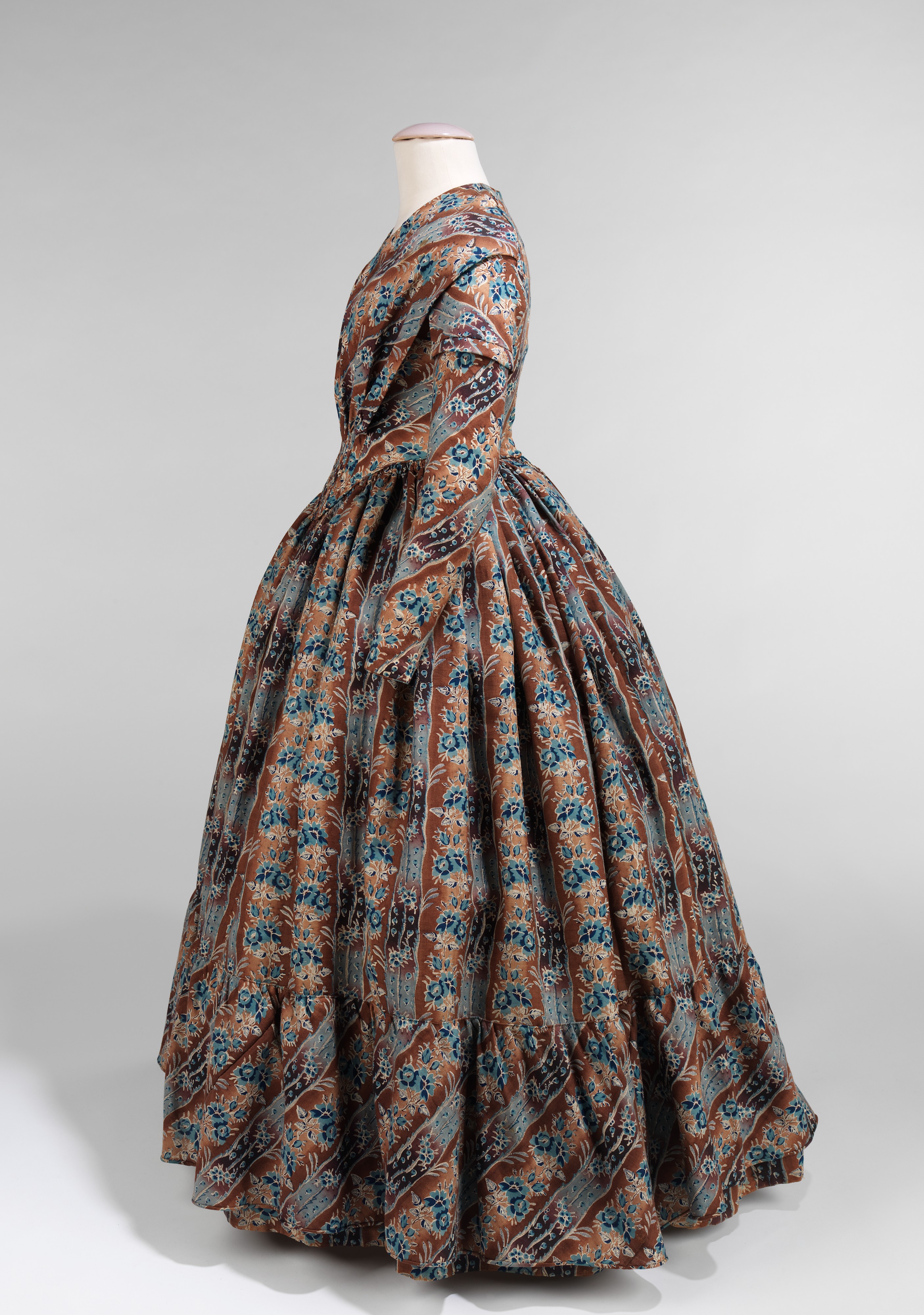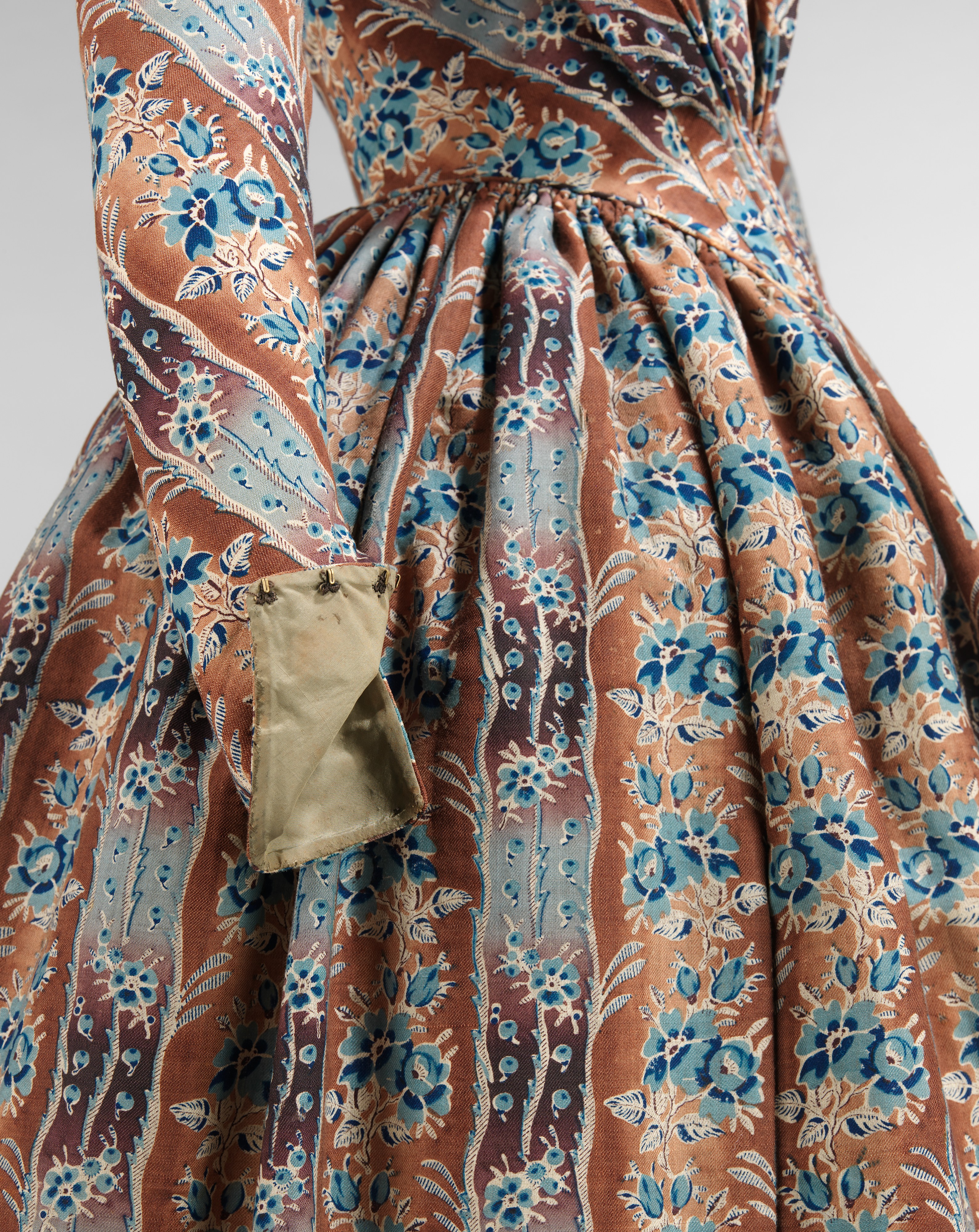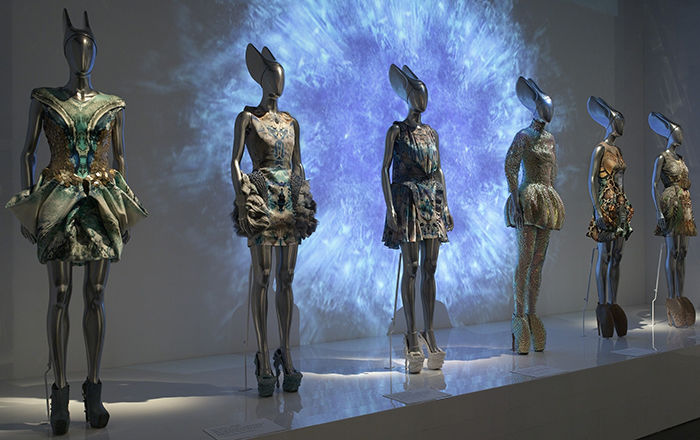Dress
Not on view
This is a stunning example of the beauty of printed and dyed fabrics that were used in the 1840s. The combination of design complexity with complicated printing and ombré dying methods create this visually satisfying textile which is shown to full effect on the full skirts of the period.
The female silhouette of the middle of the 19th century consisted of a fitted corseted bodice and wide full skirts. The conical skirts developed between the 1830s, when the high waist of the Empire silhouette was lowered and the skirts became more bell shaped, to the late 1860s, when the fullness of the skirts were pulled to the back and the bustle developed. The flared skirts of the period gradually increased in size throughout and were supported by a number of methods. Originally support came from multiple layers of petticoats which, due to weight and discomfort, were supplanted by underskirts comprised of graduated hoops made from materials such as baleen, cane and metal. The fashions during this time allowed the textiles to stand out because of the vast surface areas of the skirt and a relatively minimal amount of excess trim.
This image cannot be enlarged, viewed at full screen, or downloaded.
This artwork is meant to be viewed from right to left. Scroll left to view more.




